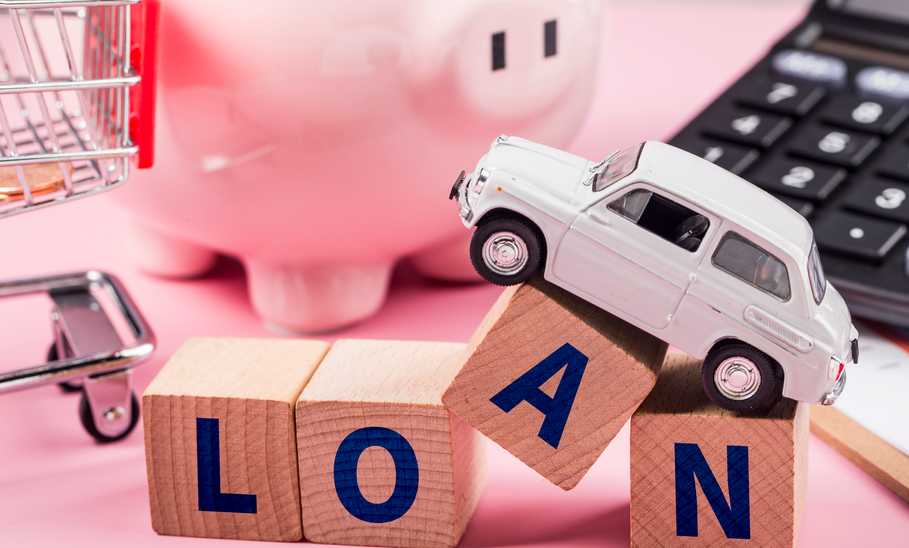Can I Get a Car Loan with No Credit?

Our evaluations and opinions are not influenced by our advertising relationships, but we may earn a commission from our partners’ links. This content is created by TIME Stamped, under TIME’s direction and produced in accordance with TIME’s editorial guidelines and overseen by TIME’s editorial staff. Learn more about it.
To many people, a car or other vehicle is a critical lifeline that gets them to work, school, the grocery store, and other important places. When buying a new car—or a used car that’s new to you—you may want to know if you can get a car loan with no credit history.
The answer is yes, it’s often possible, but you may have to prove you qualify in other ways. Keep reading to learn more about getting a car loan with no credit.
If you don’t have a credit history (that’s different from bad credit), you’re considered a riskier borrower than someone with a positive, established credit score. But that doesn’t mean you can’t get a car loan.
If you’re looking to get a car loan without credit, you should prepare in these other ways:
While there is no guarantee you’ll be approved, following these steps will put you on track for the best approval odds. Read on for details on how this process works.
Tip: Some online lenders allow you to apply for pre-approval without impacting your credit score.
While more difficult than when you have good to excellent credit, getting a car loan with no credit is possible. The following are some of the most important steps you’ll need to take to find a loan and get approved.
Your first step is finding a lender open to lending to people with no credit history. Students and recent immigrants may not have a credit history—or a credit history in the United States—but that doesn’t mean they’re unreliable borrowers. Some lenders specifically market to borrowers with no credit history. Looking at online lenders and credit unions may yield the best results. LightStream is an online auto lender, and PenFed is a popular credit union offering loans nationwide.
Also, keep in mind that auto dealerships and manufacturers are in the business of selling vehicles. They may have special programs for borrowers with no credit history. Beware of small dealerships offering their own financing, but larger, reputable dealerships tied to a specific manufacturer (e.g., Toyota, Honda, Ford, etc.) may have reasonable deals.
Lenders may be more hesitant to lend a large amount to a new borrower. Saving up a sizable down payment can improve your chances of approval. A down payment of 20%, 30%, or even 50% of the car’s cost can help you get approved.
If you stop paying a car loan, the lender can seize the car and sell it to make up for what’s still owed on the loan. When you borrow a lower percentage of the car’s value, you give the lender more protection if you default on the loan. What’s more, getting a smaller loan helps you save money on interest, lowering the car's total cost when you factor in borrowing costs.
When taking out any new loan, the lender will likely want to compare your current income to the new loan payment to ensure you can afford the loan payments. To do so, the lender will likely calculate your debt-to-income ratio. A higher income compared to your debt payments is better for loan approval.
To prove your income, plan to show a recent pay stub or two, a W-2 tax form, or perhaps your most recent entire tax return. For those with no credit history, the lender may also ask for a letter from your employer confirming your position and salary.
If you can’t get approved on your own, a cosigner may be helpful in getting a loan. Cosigners share their credit to help you qualify and potentially get a better rate. However, they’re also attaching the loan to their credit report and committing to pay it if you stop paying.
Because cosigning a loan can be a huge financial risk, you may struggle to find a cosigner for your auto loan. A parent or other close relative is likely the best person to ask.
When completing your application, think about it as a lender would. Make sure to fill it out completely and accurately. Be thoughtful about proving your income and ability to pay the loan as agreed.
A long work history can be helpful. A bigger down payment will lower your debt-to-income ratio and the lender’s risk. Anything else you can do to demonstrate that you’ll pay the loan helps the approval process.
If you can’t get a loan—or don’t want to go through the process of finding one with no credit—consider these loan alternatives:
If you save up over time, you can put enough cash together to buy the car without a loan. While this is much easier with lower-cost cars, including used vehicles, many car owners purchase without borrowing.
If you have a credit card, you may be able to use the card to pay for a lower-cost car or take a cash advance to cover some or all of the cost. However, credit cards generally charge higher interest rates than auto loans, and cash advances often require a hefty fee. Understanding when paying your car loan with a credit card is the best choice is crucial to make the right financial decision.
Maybe you can go without buying a car for the time being. Public transportation, bicycles, electric scooters, and other car alternatives could be more affordable, particularly in the short term. Car-sharing services are also a viable option for many people in urban areas.
You can work to establish a positive credit history before heading to the car lot. These tips could help you start on the right foot for building good credit.
Some banks and financial companies offer specific products to help people new to credit or with bad credit histories to build a positive credit history. Examples include the credit card from Chime, the credit builder loan from Self, and Experian Boost.
Some credit cards are designed for people new to credit. While you may get a low initial credit limit or high interest rate, if you maintain the card well and always pay at least the minimum balance by the monthly due date, you should have a credit score within about three to six months.
If you pay off the entire credit card balance in full every month by the due date, you won't pay interest.
Consider signing up for free credit monitoring to ensure your credit history stays on the right track. Credit monitoring services notify you when your credit report has a new inquiry, account, or negative information. Credit score services like Credit Karma offer this at no cost.
If you’ve found a loan with terms that aren’t the best, you can refinance your car loan later. While there may be fees at the start of the loan, if you can get a much lower interest rate, refinancing can be worthwhile in some situations.
Upstart, Caribou, and RateGenius offer auto loan refinancing with simple online applications that could quickly get you into a loan with better terms.
Getting a car loan with no credit is possible if you’re willing to shop around for a good deal and can prove that you’re a good borrower. Even if the terms are not great, you can get yourself in a vehicle that meets your needs to get to work or anywhere else. Buying an affordable vehicle in your budget helps with your long-term costs.
If you want to buy a car, you’ll probably have to spend money in some way. A down payment, loan payments, or a combination of both are required to get a car legally unless you have generous family members willing to give or let you borrow one while covering the cost.
The best car loan has a low interest rate and low origination fees. While longer-term loans may feature lower monthly payments, the total interest cost is generally higher.
Without a credit history, find a lender open to working with borrowers new to credit. A large down payment and good income relative to the monthly payment will help your approval odds.
The information presented here is created by TIME Stamped and overseen by TIME editorial staff. To learn more, see our About Us page.



